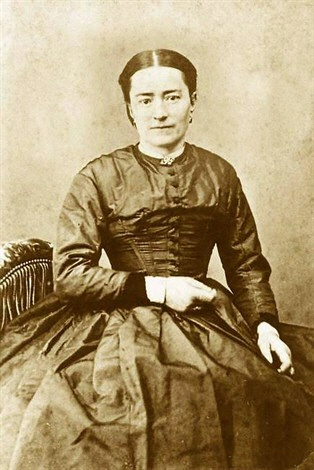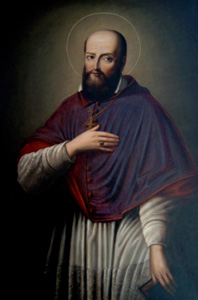- "Little things done out of love are those that charm the Heart of Christ… On the contrary, the most brilliant deeds, when done without love, are but nothingness." (St. Therese of Lisieux)
- "Love consumes us only in the measure of our self-surrender." (St. Therese of Lisieux)
- "With a nature such as my own, had I been reared by Parents without virtue . . . I would have become very bad and perhaps have been lost." (St. Therese of Lisieux)
- "[Charity] is the root of all moral virtues, because it leads us to acquire them. How? Because if one loves a person, he repeats the acts that please the person, that bring him joy. So charity pushes the soul to the repetition of acts that please God (acts of mortification, sacrifice, avoiding evil)." (St. Gianna)
- "Pietro, I was already over there and do you know what I saw? Some day I will tell you. But because we were so happy, we were too comfortable with our marvelous babies, full of health and grace, with all the blessings of heaven, they sent me down here, to suffer still, because it is not right to come to the Lord without suffering." (St. Gianna)
- "The revolt against vows has been carried in our day even to the extent of a revolt against the typical vow of marriage. It is most amusing to listen to the opponents of marriage on this subject. They appear to imagine that the ideal of constancy was a yoke mysteriously imposed on mankind by the devil, instead of being, as it is, a yoke consistently imposed by all lovers on themselves. They have invented a phrase, a phrase that is a black and white contradiction in two words—'free-love'—as if a lover ever had been, or ever could be, free. It is the nature of love to bind itself, and the institution of marriage merely paid the average man the compliment of taking him at his word. Modern sages offer to the lover, with an ill-flavoured grin, the largest liberties and the fullest irresponsibility; but they do not respect him as the old Church respected him; they do not write his oath upon the heavens, as the record of his highest moment. They give him every liberty except the liberty to sell his liberty, which is the only one that he wants." (G.K. Chesterton)
- "When one reads of the tremendous transformation of souls in the sacrament of Matrimony, one realizes that through them, as well as in a life specifically ascetic and detached, such as in the monastery and the cloister, there can be a fiery and ardent love of God. There is a story to this effect about St. Marcarius, the Egyptian hermit, who one day in his meditations wondered to what degree of holiness and union with God his solitude and years of fasting and prayer had lifted him. Falling asleep, he was told by an angel that he had not reached the level of holiness of two women who lived a nearby town of whom he should learn,. Greatly interested, St. Macarius went to the town and found the women and, to his great astonishment, found that they were married. He entreated them to tell the secret of their sanctity, but the two women, greatly confused, assured him that there was nothing remarkable about them: "We are but poor wives amidst worldly cares." But Macarius pressed his question and asked them how they came to be so holy in the eyes of God. Their answer was that for fifteen years they had been married to two brothers and had lived together under the same roof, never once quarreling nor permitting a single unpleasant word to pass between them.Thus did St. Macarius learn that peaceful cohabitation can be even more praiseworthy in the eyes of God than solitary fasting and prayer." (Archbishop Fulton Sheen, Servant of God)
- "Educators who assume that purity is ignorance of life are like those who think temperance is ignorance of drunkenness." (Archbishop Fulton Sheen, Servant of God)
- "Whenever love is deep and intense a tremendous transformation is wrought with the soul! This is because love does something to us; it affects us so profoundly that the only way we have of expressing it is by the lover's sigh, which is expressed in the Latin word spiritus! The deeper love is, the more wordless it becomes." (Archbishop Fulton Sheen, Servant of God)
- “When we had our children, our ideas changed somewhat. Thenceforward we lived only for them; they made all our happiness and we would never have found it save in them. In fact, nothing and longer cost us anything; the world was no longer a burden to us. As for me, my children were my great compensation, so that I wished to have many in order to bring them up to heaven.” (Blessed Zelie Martin, Mother of St. Therese)
- ". . . mutual support must be so great that they will never be angry with each other at the same time, and hence quarrels or disputes will never be seen between them. Honeybees cannot remain in a place where there are echoes, loud noises and resounding voices, nor can the Holy Spirit remain in a home where there are quarrels, recriminations, and the echoing sounds of scolding and strife." (St. Francis de Sales)
- "The ordinary acts we practice every day at home are of more importance to the soul than their simplicity might suggest. " (St. Thomas More)
5. Three to Get Married by Archbishop Fulton Sheen





